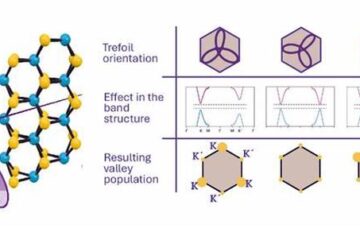Embryonic stem cells induced to develop into bone marrow and blood cells

Researchers at Northwestern University have devised a method to induce embryonic stem cells to develop into bone marrow and blood cells. Injecting the stem cells into the bone marrow cavity of mice whose bone marrow cells had been depleted restored production of blood cells, including cells of the immune system, which normally are created in the bone marrow.
As reported by Richard K. Burt, M.D., and colleagues in April issue of The Journal of Experimental Medicine, the method was effective even in genetically mismatched mice. If the same results can be produced in humans, the technique may eventually eliminate the need to find genetically matched human bone marrow donors for persons with leukemia, autoimmune diseases and other immune disorders, Burt said.
Burt is associate professor of medicine and chief of immunotherapy for autoimmune diseases at the Feinberg School of Medicine at Northwestern University.
Embryonic stem cells, which are derived from embryos, have the potential to grow into many different cell types. Burt and colleagues identified the most effective mix of growth factors to induce stem cells in culture to develop into precursor bone marrow and blood cells. They also developed a technique to select the most viable cells for injection.
Despite the genetic mismatch between donor and recipient mice, the injected cells were not rejected. The injected cells matured into a new immune system that recognized the recipient as self.
Blood or marrow stem cells from a sibling or an unrelated or cord blood registry often fail to develop tolerance to the recipient or patient into which they are infused – an often-fatal complication after bone marrow transplantation that is known as graft-versus-host disease.
But in the study, after embryonic stem cell transplantation the mice’s immune response, while tolerant to self, responded to foreign substances normally, indicating that recipients are able to fight off infection. Although the use of human embryonic stem cell lines is controversial, it has many advantages over the use of donor bone marrow or blood cells, which are highly variable, cannot be cultured in a laboratory, may cause lethal graft-versus-host disease and are often not available to patients due to inability to find a suitably matched donor.
Human embryonic stem cell lines can be cultured indefinitely, providing a permanently renewable alternative marrow source that restores blood cell production with an intact immune response without causing graft-versus-host disease.
Media Contact
More Information:
http://www.nwu.edu/All latest news from the category: Life Sciences and Chemistry
Articles and reports from the Life Sciences and chemistry area deal with applied and basic research into modern biology, chemistry and human medicine.
Valuable information can be found on a range of life sciences fields including bacteriology, biochemistry, bionics, bioinformatics, biophysics, biotechnology, genetics, geobotany, human biology, marine biology, microbiology, molecular biology, cellular biology, zoology, bioinorganic chemistry, microchemistry and environmental chemistry.
Newest articles

Simplified diagnosis of rare eye diseases
Uveitis experts provide an overview of an underestimated imaging technique. Uveitis is a rare inflammatory eye disease. Posterior and panuveitis in particular are associated with a poor prognosis and a…

Targeted use of enfortumab vedotin for the treatment of advanced urothelial carcinoma
New study identifies NECTIN4 amplification as a promising biomarker – Under the leadership of PD Dr. Niklas Klümper, Assistant Physician at the Department of Urology at the University Hospital Bonn…

A novel universal light-based technique
…to control valley polarization in bulk materials. An international team of researchers reports in Nature a new method that achieves valley polarization in centrosymmetric bulk materials in a non-material-specific way…





















